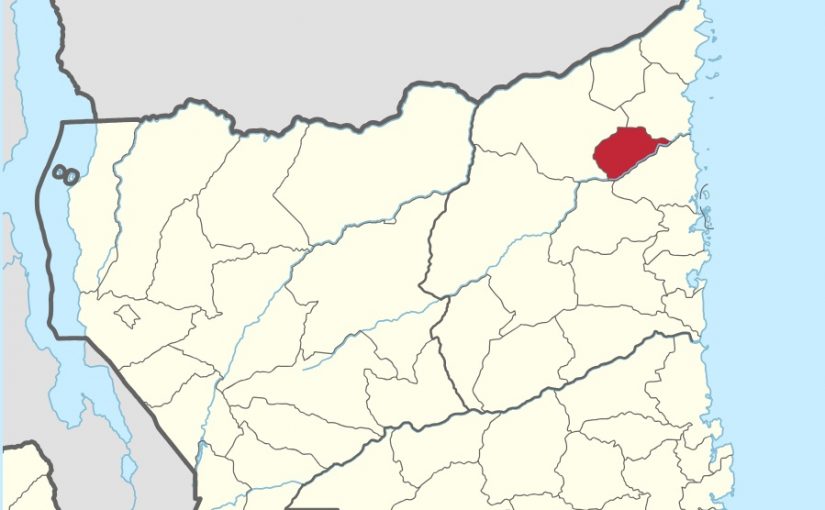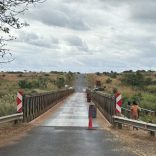No notification of Mozambican citizens among 4,000 immigrants to leave Portugal - ambassador
Mozambique: Cabo Delgado insurgents destroy crops in alleged revenge attack

Muidumbe district, Cabo Delgado province. [Image: Wikimedia Commons]
An unspecified group of attackers have destroyed several of local residents’ agricultural crops in the town of Miangalewa, in the district of Muidumbe, in the Mozambican province of Cabo Delgado, a source from the Local Force told Lusa on Friday.
According to the same source, the case happened on Wednesday night, when the rebels, armed with machetes and other sharp instruments, went to “spoil crops in local residents’ fields”.
The source, a member of the Local Force, explained from Muidumbe that the crops damaged were corn, sesame, rice, beans and manioc, in an alleged act of revenge by the terrorists, after the military had destroyed a production site that supposedly belonged to the rebels.
“The military were the first to destroy the terrorists’ crops, that’s when they decided to take revenge by spoiling the local residents’ crops,” the source reported.
During the night, the terrorists fired several times and the local residents living in the production areas, such as Manhiça, were forced to flee to the town centre of Miangalewa.
The Islamic State terrorist group today claimed responsibility for an attack in Cabo Delgado, in which it says nine soldiers died, the second of its kind known this month.
According to information provided by the terrorist group on its propaganda channels, the attack took place this week, but without specifying the location.
Lusa has not yet been able to confirm the veracity of this information on the ground and the Mozambican government does not comment on this type of attack.
On 9 December, the Islamic State had already claimed responsibility for an attack in Cabo Delgado in which five military personnel died, and said that they had beheaded a Christian civilian.
According to information provided by the terrorist group on its propaganda channels, the attack was documented on video and took place in the village of Manhiça, Muidumbe district, forcing the local residents to flee.
Cabo Delgado province has been facing an armed insurgency for six years, with some attacks claimed by the extremist group Islamic State, which has led to a military response since July 2021, with support from Rwanda and the Southern African Development Community (SADC), liberating districts near gas projects.
The conflict has already displaced a million people, according to the United Nations High Commissioner for Refugees (UNHCR), and caused around 4,000 deaths, according to the ACLED conflict registration project.
On 22 November, Mozambican president Filipe Nyusi called for “decisions” on the capacity of the Armed Forces in Cabo Delgado to respond, namely with reservists, in view of the planned withdrawal of foreign forces supporting the terrorist groups on the ground.
“Concrete decisions on the capacity of the Armed Forces to respond to the fight against terrorism in Cabo Delgado in the period after the withdrawal of friendly forces from SAMIM [the SADC mission in Mozambique] and Rwanda,” asked Nyusi, at the opening of the XXIV coordinating council of the ministry of national defence.
“To this end, your reflection should also assess how best to capitalise on the wealth of reservists, committing them directly or indirectly to various missions for the defence of our country’s sovereignty and territorial integrity. And the current reality justifies it,” he added.
In August, the SADC summit approved a 12-month extension of the mission in Cabo Delgado until July next year. In July this year, an evaluation mission proposed the complete withdrawal of SAMIM troops in Cabo Delgado by July 2024, pointing out that the situation in the province “is now calm”, even though the risks remain.
In addition to SAMIM and the Mozambican government forces, Rwandan troops are fighting the insurgency in Cabo Delgado, operating on the perimeter of the area where the natural gas projects in the Rovuma basin are located.













Leave a Reply
Be the First to Comment!
You must be logged in to post a comment.
You must be logged in to post a comment.